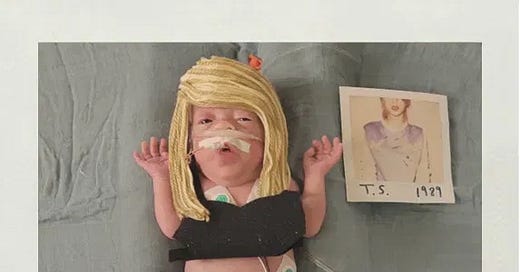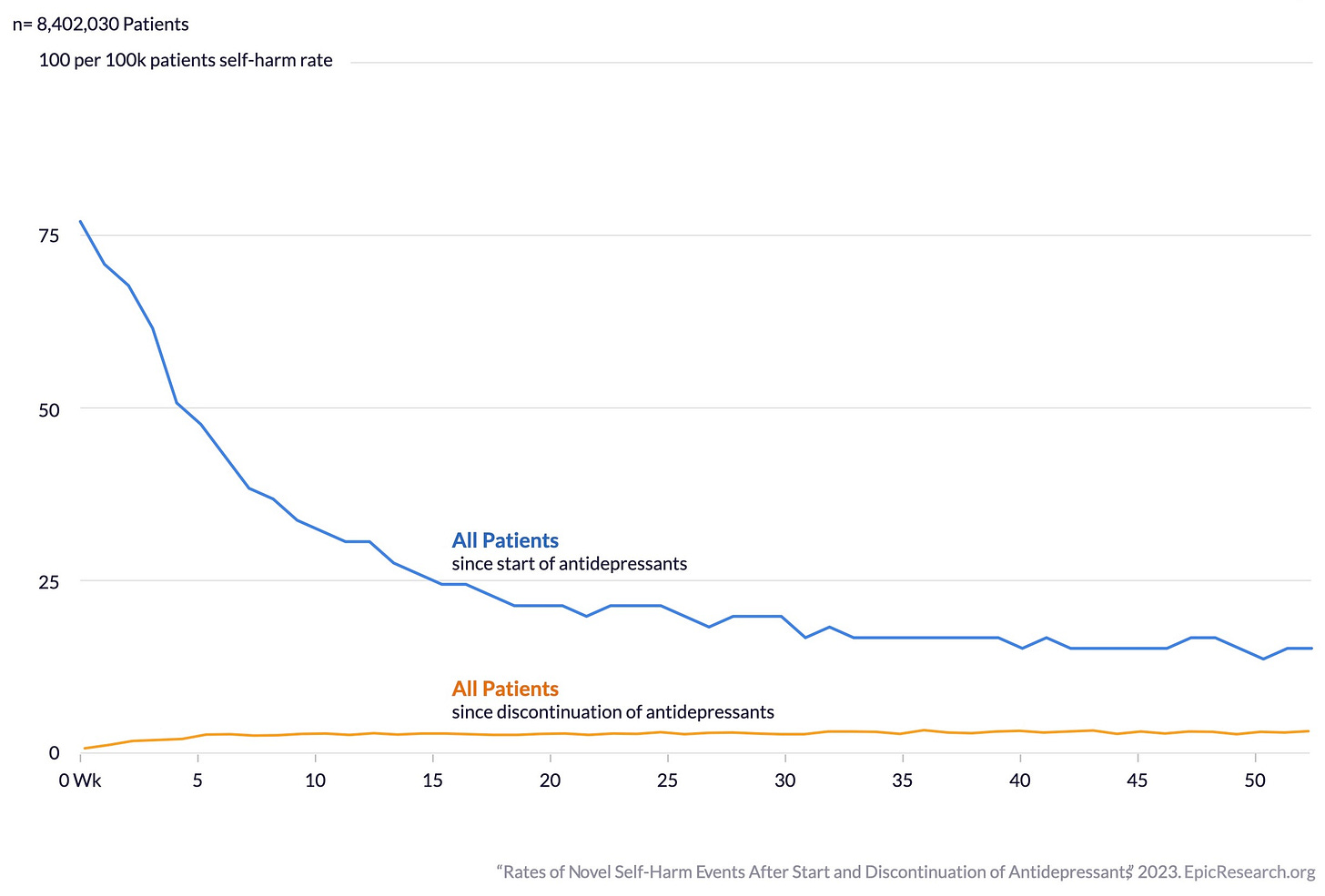Digital Exhaust #193
Milking Liz Holmes, Swift preemies, and tools for people who hate writing
Welcome back to Digital Exhaust, a 33c weekly digest. Here are a few things I found this week.
Prompt or perish
And a radiologist wrote a bunch of papers at breakneck speed — 16 papers in four months, to be exact — All by GPT! And he didn’t limit himself to radiology:
In fact, he’s used the bot to write papers on the role of ChatGPT in the military, education, agriculture, social media, insurance, law, and microbiology. He’s successfully had these published in journals specializing in different niche disciplines, including a paper on computer programming in the Mesopotamian Journal of Computer Science, and two letters to the editor on global warming and public health in the Annals of Biomedical Engineering.
Publish or perish has now become, prompt or perish. (rimshot)
Et al for sale
An engineering journal has retracted an article that was posted on a website claiming to sell author positions. I have never heard of this but I’m gonna guess this is isn’t the first time it’s happened.
Drawing conclusions from unrefined technology
Just as the first iPhone reviews mostly missed the device’s huge potential, it’s folly to draw conclusions from today’s unrefined technology. Steven Levy (one of a handful of journalists picked by Steve Jobs to review the first iPhone) in Wired discusses the cultural phenomenon of nitpicking new technology.
I see this everywhere in medicine — the first iteration of an amazing new tool is a little wonky and we pick it apart. I suspect I’m in the minority here, but I think this comes from our own insecurities around seeing such powerful tools in our space. Personally, disassembling this stuff publicly give me a bit of control in a world where I wield less and less of it. It seems tools just appear in my space and no one asks my opinion.
And here is Nicollo Machiavelli on the plight of the innovator:
There is nothing more difficult to take in hand, more perilous to conduct, or more uncertain in its success than to take the lead in the introduction of a new order of things. Because the innovator has for enemies all those who have done well under the old conditions, and lukewarm defenders in those who may do well under the new.
Twitter username land grab on the horizon
Twitter is purging inactive accounts on its platform, which may free up a number of long-coveted usernames, according to recent tweets by Elon Musk. If you are a Twitter user, you can expect your follower count to drop.
Clinical information is never static
I stumbled on this Twitter quote from Penn radiologist Sarabh Jha.
The radiology report is just a tool to encourage radiologist-clinician dialogue. A mere tool, not the final product, The final product is the dialogue. The report has received far too much salience
It really made me think. He raises the point that no piece of clinical information is static and fixed. It is part of a continuum; an inconvenient truth that we don’t like to acknowledge. Humans and those who care for them are dynamic. And what we understand can change quickly, with or without new information.
Let’s regulate it when we understand it
The head of the Food and Drug Administration has warned the U.S. needs to be “nimble in the use and regulation of large language models” to avoid being “swept up quickly by something that we hardly understand.”
Too late. We’ve been swept.
And LLMs are so complex that no one will ever understand them. If Sam Altman, the man who spawned the beast, can’t understand, I’ll guess that Rob Califf and the geniuses in Washington are in no position to enlighten us any time soon.
We’re facing an unprecedented power not easily controlled. It’s inconceivable how we put the genie back in the bottle. I just don’t know where this is going to land.
RIP Metaverse
Mark Zuckerberg finally put it out of its misery.
Milking Liz
As Elizabeth Holmes circles the drain, she’s gasping for one last breath of publicity. And The New York Times has obliged — in fact, they were ‘charmed’ by the infamous fraud. Dr. Ben Mazer in The Atlantic (likely paywalled but you can get freebies ) disembowels the woman now rebranded as ‘Liz’, as well as the paper desperate to squeeze the last sorry bit of traffic from this debacle.
The media created Elizabeth, and now they’re milking Liz all the way down.
“I don’t know about you, but I’m feelin’ 32 (weeks)”
Nashville NICU nurses dressed their preemies like Taylor Swift. I’m thinkin’ this nursery needs a higher daily census. This goes right up to the edge of creepy.
What’s a techie?
Excellent micro post from Seth Godin on the concept of the ‘techie’.
I think we’ve long passed the point where an active professional can simply choose to not understand how tech works …. You’re a user or you’re being used. Best to know which.
Nice overview of telepsych
Good general piece in The Smithsonian (of all places) on the future of telepsychiatry. The argument for remote behavioral care closing the growing access gap is strong. One of the big challenges cited here carries across digital health:
“With VC support behind it, there’s this push toward quick return as fast as possible—grow, grow, grow.” With around 20,000 mental health apps currently available on the marketplace, ensuring these technologies are validated and demonstrate tangible benefit is thus of utmost importance. And doing this properly requires a lot of data collection, independent studies and replicated results.
Maybe in healthcare startups the motto should be: Move slow and heal things. Not sure how well that would be recieved.
+ Oh, and there's now an AI powered VC firm.
The Andreesen Horowitz annual crypto report. Unpacked
Venture capital firm Andreessen Horowitz (aka “a16z”) has invested billions in crypto, raising four separate crypto funds. From
comes a scathing dissection of their annual crypto report. Takeaway: Be careful about taking investment advice from the guy who has a big stake in the thing he’s talking about.Tools for people who hate to write
Good WSJ piece covering writing platforms that go beyond Word and Google Docs. The story features Ulysses, the markdown platform I use for this newsletter and most everything I write. This is likely paywalled. But if you’re motivated this way it’s worth a peek.
+ In related news, here’s some pragmatic writing advice from the sixth century in Lapham’s Quarterly.
When self-harm occurs in patients with depression
Epic analyzed 8,402,030 patients with no history of self-harm or suicide attempt when initially prescribed antidepressants. They found that the greatest risk of self harm occurred early on in treatment. Not super surprising, I guess. But eight million..holy Toledo. Who has numbers like this?
Thanks again for being a subscriber. Thanks to those of you who have offered up ‘pledges.’ It’s incredible that someone would ever commit to supporting something like this. Great to know that I’m not screaming into space! And as always, please pass this along to anyone who you think might get a kick out of it.





I enjoy almost everything that you put out for our consumption!
I find that I will think about some things differently, which is definitely a good thing.